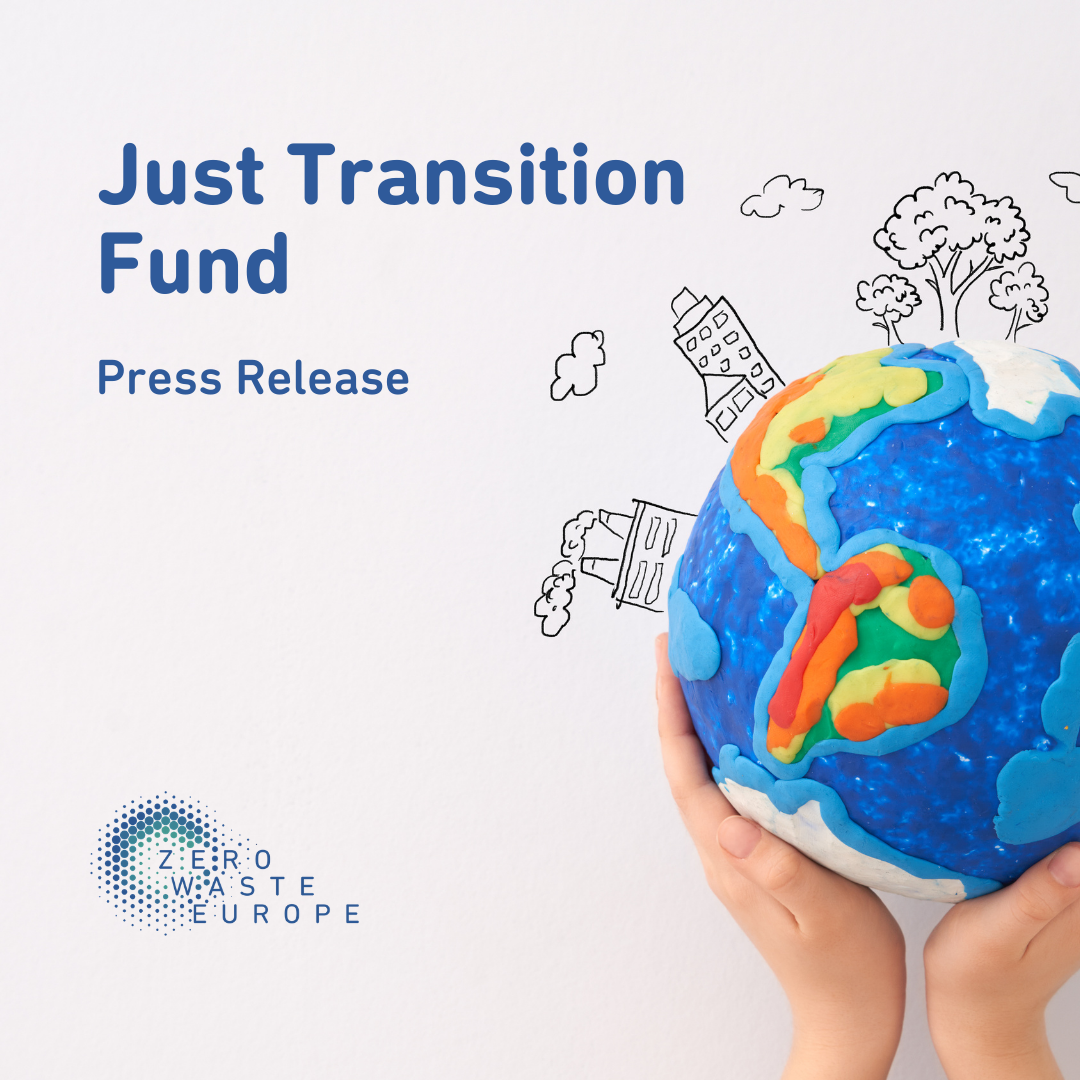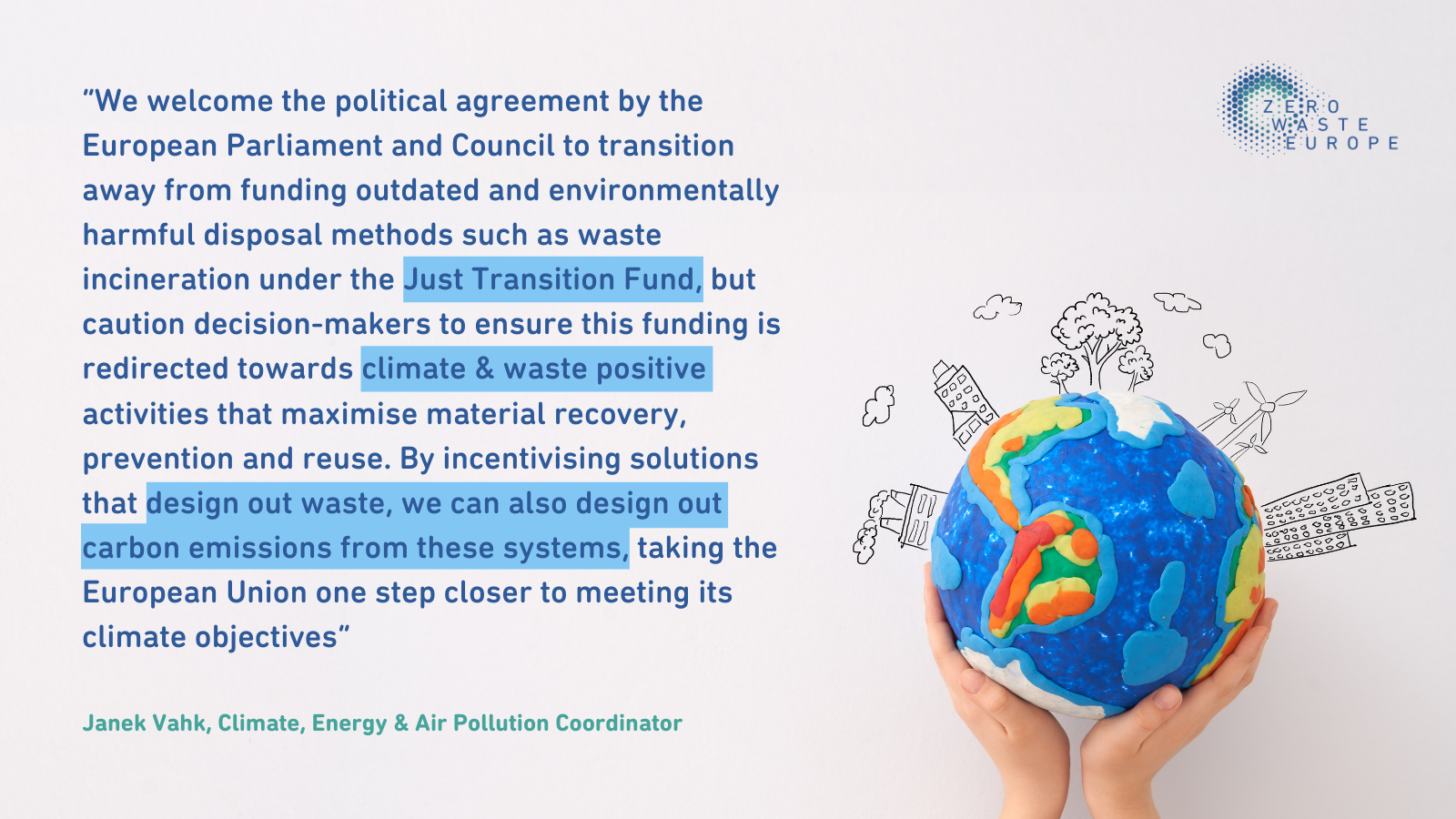Press Release: Just Transition Fund moves away from false waste management solutions but will it direct funding to circular ones?

FOR IMMEDIATE RELEASE: Brussels, 9th December 2020
Today a political agreement was reached between the European Parliament and Council on the Just Transition Fund which aims to support the socio-economic transformation of the most affected regions in Europe in their transition away from fossil fuels and carbon-intensive industries. The activities eligible for this support include investment in activities such as waste prevention, reduction and reuse that enhance the circular economy and exclude investments in energy recovery and disposal.
“We welcome the political agreement by the European Parliament and Council to transition away from funding outdated and environmentally harmful disposal methods such as waste incineration under the Just Transition Fund, but caution decision-makers to ensure this funding is redirected towards climate & waste positive activities that maximise material recovery, prevention and reuse. By incentivising solutions that design out waste, we can also design out carbon emissions from these systems, taking the European Union one step closer to meeting its climate objectives.” – Janek Vahk, Climate, Energy & Air Pollution Coordinator at Zero Waste Europe
ENDS
For more information contact: Janek Vahk, Climate, Energy and Air Pollution Programme Coordinator at Zero Waste Europe [email protected] | +32 49 355 3779
NOTES
Article 4(g) of the Just Transition Fund states – “Investments in enhancing the circular economy, including through waste prevention, reduction, resource efficiency, reuse, repair and recycling; Non-eligibility of waste incineration was clarified in Recital 10 – …The projects financed should contribute to a transition to a climate-neutral and circular economy, including measures aiming at increasing resource efficiency. It is clarified that waste incineration should not receive support given that this activity belongs to the lower part of the waste circular economy hierarchy.”
For more examples of Zero Waste best practices: https://zerowastecities.eu